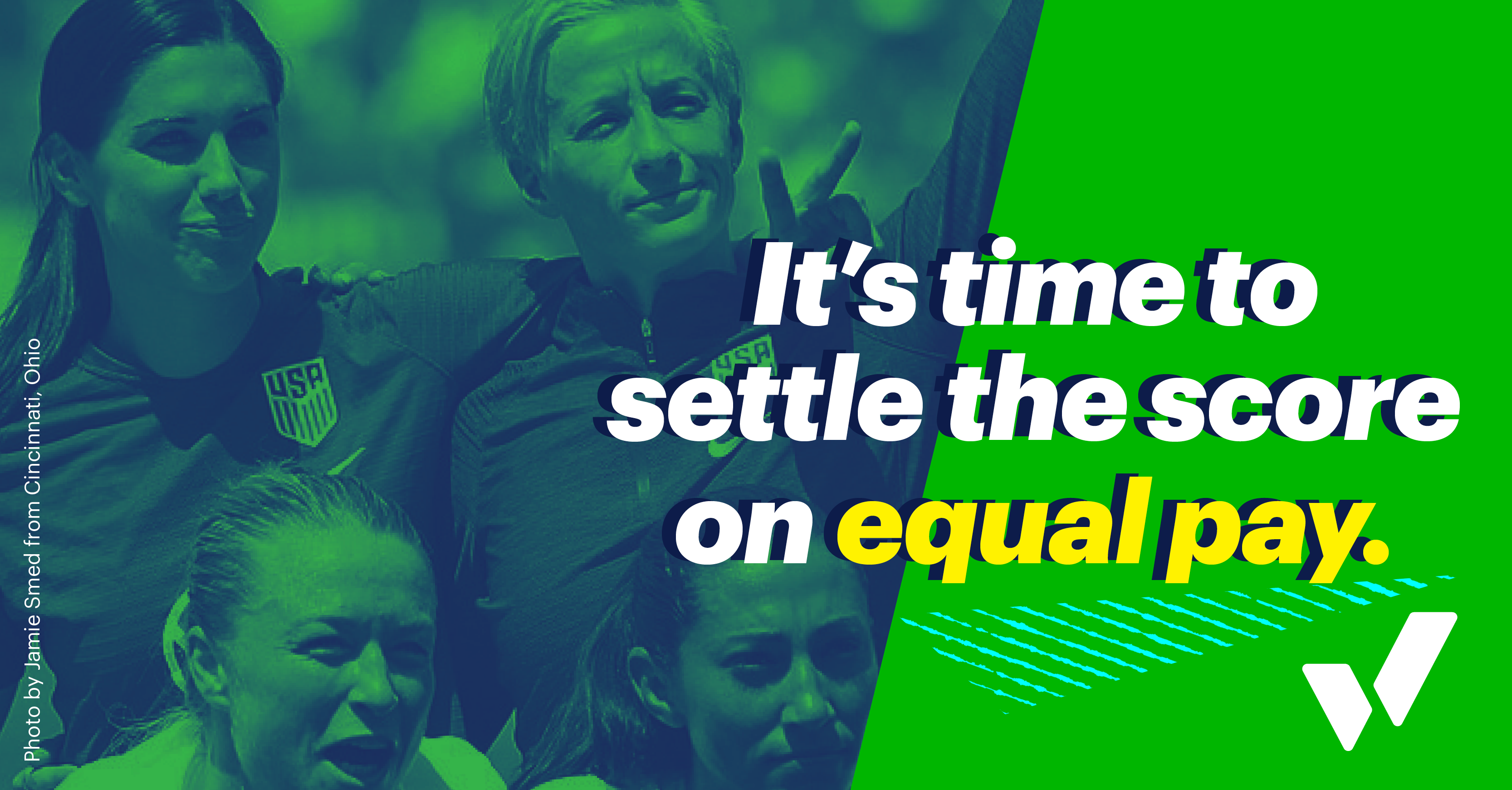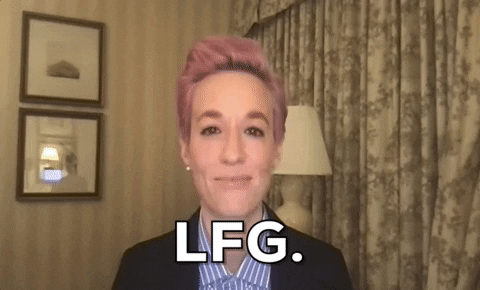LFG: Why We’re Joining the Women’s Soccer Team’s Fight for Equal Pay

Whether or not you’re a women’s soccer fan—though if you’re not…what are you waiting for?—you’ve probably heard about the U.S. Women’s Soccer Team’s (USWNT) ongoing battle for equal pay. AKA the lawsuit in which some of the best soccer players in the world, who have won four gold medals and brought home four world cups, are suing their own organization for insisting that they are in fact, not worthy of being paid the same as men 🙃

The lawsuit, which started in 2019 just before the World Cup, is still being fought in the courts because U.S. Soccer would rather write social media posts bashing their own team instead of simply paying them correctly. We obviously have some feelings about this, which is why we’re elated to say today we filed an amicus brief, along with the Women’s Sports Foundation and 63 of our allies, in support of the players and joined their fight for equal treatment by U.S. Soccer.

You might be wondering though, how exactly did we get to this point? Let’s break it down.

How we got here
The members of the women’s team have dealt with unequal treatment and pay long before 2019—even the famous “99ers” who first brought home the World Cup for the women’s team spoke out about the abysmal conditions they experienced, despite being world class athletes.
And while things have improved, the women’s team—while continuing to grow in popularity and success and bringing more attention and money to U.S. Soccer—is still treated as second class by their own employers.
Basically, what it boils down to is this: U.S. Soccer claims that the women’s and men’s teams are compensated equally, which is patently false. The women’s team is the best in the world, while the men are… not, so the women won almost all the performance bonuses available to them, while the men didn’t. This meant that the per-game average each team was paid was roughly similar, but only because the women won so many more games than the men. U.S. Soccer claims it’s fine to make women work harder for the same pay, and the trial court unfortunately agreed. But women should never have to work harder than men to get the same amount of pay. As the women’s team likes to put it, the court’s decision “defies reality” (we’re here for this spicy take).
Why we joined the fight
As you might imagine, no one is happy here when courts make bad decisions about equal pay cases. And the mistake that was made in this case definitely drew our attention. U.S. Soccer is violating the law—namely, the Equal Pay Act—and they need to be held to account just like anyone else who isn’t paying their employees equally.

The future for equal pay, the USWNT, and more
The women’s soccer team’s fight for equal pay isn’t just about one team, or one group of players. It’s setting a precedent for athletes and women everywhere. As equal pay advocates, we’re well aware that pay inequity still exists across every. single. industry. One person’s fight for equal pay is everyone’s fight for equal pay, no matter where they work. We’re proud to join them today, because we know that winning this battle means a better and more equal future for all of us.
So, LFG!








